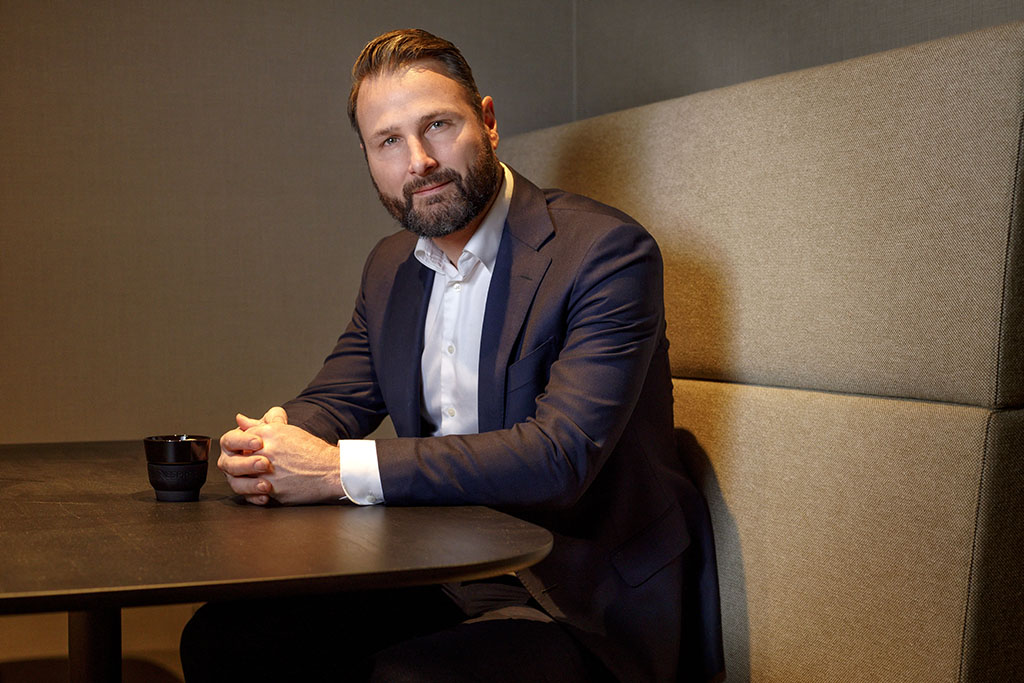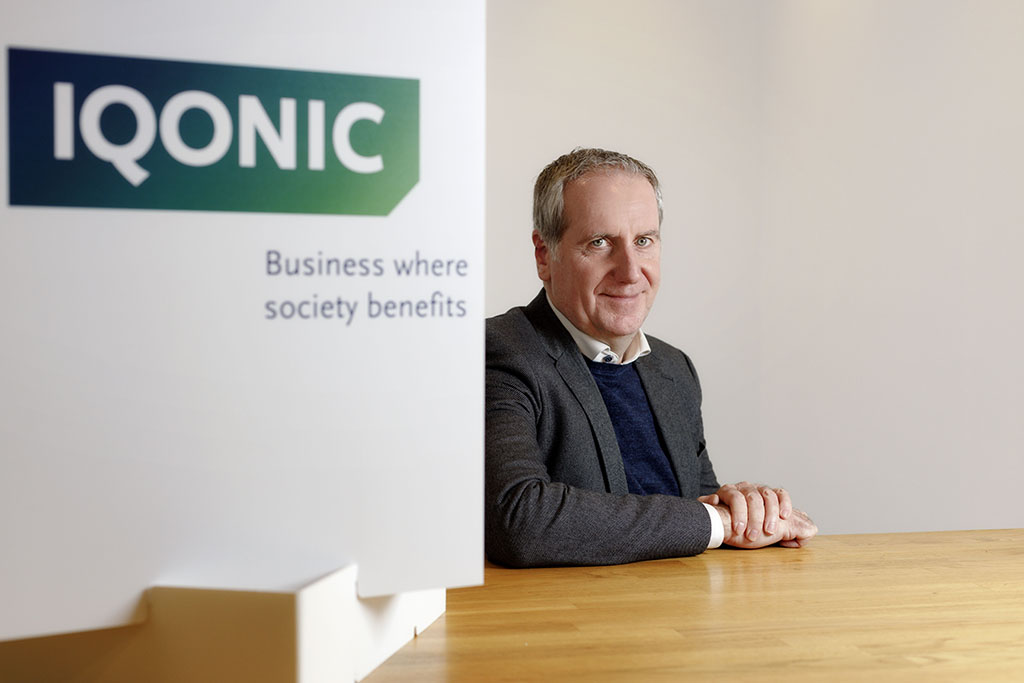‘Entrepreneurship is part of the university that Cobbenhagen envisioned’
Entrepreneurship in education, entrepreneurship in science. The university seems to have taken a new direction in recent years. This has led to concern among a number of Tilburg scientists: are we moving away from the academic track? There is no reason for concern, say Jeroen Kuilman and Edward van de Pol. It is not a new course, but an interpretation of the social orientation that the university already had. “That’s what Cobbenhagen had in mind.”

With the inclusion of entrepreneurship in the educational profile and the launch of the Bachelor’s degree in Entrepreneurship, we have embraced entrepreneurship, the university proudly announced in Tilburg University Magazine. In doing so, the university is responding to the spirit of the times and the students’ needs, “as evidenced by the enormous interest in the new Bachelor’s program.”
But not everyone is happy with all this attention to entrepreneurship. Does the logic of business prevail over academic values here? For example, Professor Juliette Schaafsma wrote in an opinion piece (Dutch only) in Univers late last year, “Better than embracing entrepreneurship, the university can, by its very nature, reflect critically and independently on such developments and, where necessary, understand society, provide a counterbalance.”
Neoliberal thought
According to Jeroen Kuilman, Vice-Dean for Education of the School of Economics and Edward van de Pol, director of the Knowledge Transfer Office, there is a misunderstanding. Embracing entrepreneurship does not mean that the neoliberal ideology of the market and the pursuit of profit as the norm of things have been adopted by the university.
Kuilman: “The source of the confusion is the definition of what entrepreneurship is. It is seen as purely profit-driven, only having an eye for commercial interests. That is a very limited view of entrepreneurship. We focus on entrepreneurship in the broad sense. That is also reflected in the Tilburg Educational Profile, which talks about knowledge, skills, and character and that can be expressed in entrepreneurship.”
“We don’t expect all our students to start their own businesses, but we do expect them to be entrepreneurial. That can be done in all sorts of ways. Within their studies, for example, by doing a board year, going on an exchange, or being involved in Serve the City. The students who do that are very entrepreneurial, and we highly encourage that, it is a good match for this university”.
Valorization
The university’s motto is Understanding Society, but if you do that, what do you do with it, argues Edward van de Pol. Entrepreneurship, he says, can, in fact, be a means to do something with social engagement. “I notice that that’s what students want. Involvement and entrepreneurship, I think you can give direction to that in the program. Young people are super adaptive and have good antennae for what society considers to be important. Bachelor’s students have different ambitions compared to entrepreneurs of the past; you can see that in their startup companies.”

“Today, successful entrepreneurs have an eye for all aspects in their business operations. Eye for the environment, eye for people. That is typically something that belongs to the Tilburg profile. For more and more students, that is a reason to embark on startups, to have an impact. Not out of pure pursuit of profit. Social entrepreneurship, impact-driven entrepreneurship, that’s the future. That’s what you see in young people and that’s what you have to support. Business where society benefits, that is the payoff of IQONIC (the Tilburg University incubator, ed.), that is why we do it.”
Cobbenhagen
According to both, the focus on entrepreneurship does not change the ideals of the university and the course to implement these ideals. Entrepreneurship is not the goal but primarily the means. Kuilman: “This university once started as a business university with a focus on social orientation. This approach is part of Tilburg and is what Cobbenhagen had in mind. We are a very enterprising university, both for students and for our academic staff. Take for example Hein Fleuren’s Zero Hunger Lab (Dutch only). He is also an entrepreneurial scientist who has set up something new. He has gathered people for this, approached organizations. Not for profit, but to work for a better world. I think that’s very exemplary of this university.”
Van de Pol: “The three core tasks of the university are education, research, and making this meaningful to society. An example of this is the app against fear of needles developed by researcher Elisabeth Huis in ’t Veld (Dutch only). She first saw the problem when she was doing research at the blood bank. Some people who were regularly jabbed had a reflex making them faint, and so they stopped donating blood. She started thinking about how to tackle this and came up with an AI solution with neurofeedback. That was a good way to retain blood donors. And then the coronavirus appeared with one of the largest vaccination programs in history. The importance of a solution for needle fear became even more relevant and, simultaneously, the idea of starting a business. In this way, with her knowledge and model, she can reach and help a lot of people.”
Growth Strategy
Jeroen Kuilman: “Because of the growth in student numbers in recent years, there is a perception among some that the university is still pursuing a growth strategy. That we want to attract as many students as possible for financial reasons. But the situation is different. It’s about quality first. More and more is not our drive.”
“We didn’t set up the Bachelor’s degree in Entrepreneurship because we want to expand our School as fast as possible but because it should be part of our portfolio. Originally, we had thought that the program would be successful if we could attract fifty students. We were quickly overtaken by reality. In the first year, we already had three hundred and this year too. It is actually a greater success than we had estimated beforehand.”
‘Not everyone necessarily wants to start their own business, and they don’t have to’
“Of those students, about 50 were already working on their own small businesses. Often, they have been working on it since high school. Young people are starting much earlier now. Not everyone necessarily wants to start their own business and they don’t have to: employers also need people who can think innovatively and are creative. We try to cultivate that innovative and creative mindset in our students. Companies and governments can also benefit from that.”
Collaboration
Edward van de Pol: “Tilburg University wants to be an attractive university for students and scientists. Entrepreneurship really plays a major role in this. In Brabant, we work together with Fontys, JADS, Avans, TU Eindhoven, the Breda University of Applied Sciences, and the HAS University of Applied Sciences. For example, with the annual entrepreneurial symposium The Road for students and entrepreneurs of the Academic Business Club and the monthly event Venture Visionaries.
“We support students and scientists. The basic principle is that they have to do it themselves. They get the facilities, people who can help, and a valuable network. We don’t take any work off their hands, but we do have a guidance program that we use to help them avoid pitfalls. We offer a safe environment where they can try things out and where they are also allowed to fail. We help them avoid major problems so that major accidents don’t happen.”
Kuilman: “Ultimately, it’s about the problem you solve. That is the starting point of what we teach students. You’re going to develop that solution, you’re going to test it, you’re going to adjust it. That’s a competency that companies and organizations consider to be very important and that can lead to social impact.”
Translated by Language Center, Riet Bettonviel






